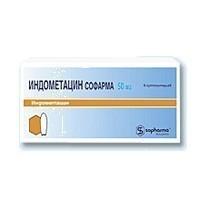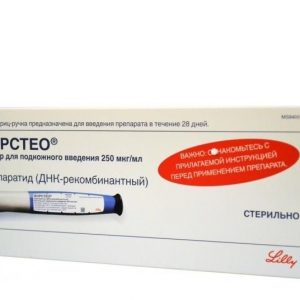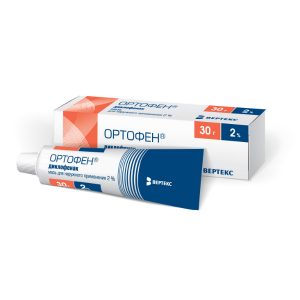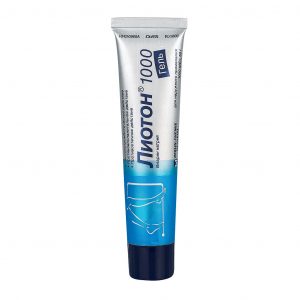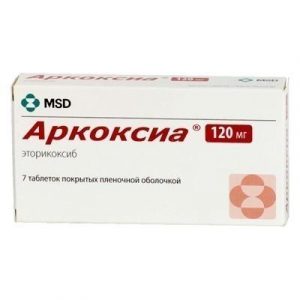Description
Release form
Rectal suppositories in white with a yellowish or creamy hue, torpedo-shaped, with a faint specific smell.
Packing
6 pcs. – blister packagings – packs of cardboard.
Pharmacological action of
Indomethacin has anti-inflammatory, analgesic and antipyretic effects, as well as some antiplatelet effect. Suppresses the activity of anti-inflammatory factors, reduces platelet aggregation. Inhibiting cyclooxygenase 1 and 2, disrupts the metabolism of arachidonic acid, reduces the number of prostaglandins (Pg) both in the focus of inflammation and in healthy tissues, suppresses the exudative and proliferative phases of inflammation.
When applied externally, it causes a weakening or disappearance of a pain syndrome of a rheumatic and non-rheumatic nature (including pain in the joints at rest and during movement, reduces morning stiffness and swelling of the joints, helps increase the range of motion in inflammatory processes that occur after operations and injuries , quickly relieves both spontaneous pain and pain during movement, reduces inflammatory edema at the wound site).
Indications
For systemic use: joint syndrome (rheumatoid arthritis, osteoarthritis, ankylosing spondylitis, gout), spinal pain, neuralgia, myalgia, traumatic inflammation of the soft tissues and joints, rheumatism, diffuse connective tissue diseases, dysmenorrhea. As an adjunct in infectious and inflammatory diseases of the ENT organs, adnexitis, prostatitis, cystitis.
For topical use: prevention of the inflammatory process during surgical interventions for cataracts and the anterior segment of the eye, inhibition of myosis during surgery.
Contraindications
Individual hypersensitivity to indomethacin, aspirin or other NSAIDs (history of bronchospasm, urticaria or rhinitis due to the use of acetylsalicylic acid or other NSAIDs) gastric ulcer children’s age (up to 14 years).
hematopoietic disorders
severe hepatic and / or renal impairment
severe forms of chronic heart failure, hypertension, pancreatitis
for rectal administration: proctitis, recent rectal bleeding.
Use in pregnancy and lactation
Indomethacin is contraindicated in the third trimester of pregnancy. In the I and II trimesters of pregnancy, as well as during lactation (breastfeeding), the use is not recommended.
Indomethacin in small amounts is excreted in breast milk.
Special instructions
Use with caution in elderly patients, as well as in case of liver, kidney, gastrointestinal diseases in the anamnesis, with dyspeptic symptoms at the time of use, arterial hypertension, heart failure, immediately after serious surgery, with parkinsonism, epilepsy.
For indications of a history of allergic reactions, NSAIDs are used only in urgent cases.
During the treatment period, systematic monitoring of liver and kidney function and the picture of peripheral blood is necessary.
Concomitant use with acetylsalicylic acid and other NSAIDs is not recommended.
Indomethacin should not be used concurrently with diflunisal.
With the simultaneous use of indomethacin with lithium preparations, the possibility of symptoms of the toxic effects of lithium should be borne in mind.
Topical application should not be applied to the wound surface of the skin, and avoid contact with eyes or mucous membranes.
Influence on the ability to drive vehicles and control mechanisms
During treatment, one should refrain from potentially dangerous activities related to the need for concentration and increased speed of psychomotor reactions.
Composition
Active ingredient: indomethacin 50 mg.
Dosage and administration
Rectally (injected into the rectum). Before using the suppository, it is recommended to empty the intestines. Wash your hands, free the suppository from the contour packaging by cutting it with scissors or by opening it with your hands, pulling the edges of the contour packaging at different ends, and insert the suppository into the anus with a pointed end, as deep as possible. For more convenient use of the suppository, it is recommended to bend down or sit down, you can enter lying on your side.
Suppositories 50 mg for adults 1-3 times a day for children (over 14 years old) 1 time per day
Suppositories 100 mg – 1 time per day
During an attack of gout, up to 200 mg per day.
Recommended for use at night.
Side effects of the
Digestive system: nausea, anorexia, vomiting, pain and discomfort in the abdomen, constipation or diarrhea, erosive and ulcerative lesions, bleeding and perforation of the gastrointestinal tract rarely – intestinal strictures, stomatitis, gastritis, flatulence, bleeding from sigoritis intestines or from a diverticulum, jaundice, hepatitis.
From the side of the central nervous system and peripheral nervous system: dizziness, headache, depression, feeling of tiredness rarely – anxiety, fainting, drowsiness, cramps, peripheral neuropathy, muscle weakness, involuntary muscle movements, sleep disturbances, mental disorders (depersonalization, psychotic episodes), paresthesia, dysarthria, parkinsonism.
From the cardiovascular system: edema, increased blood pressure, tachycardia, chest pain, arrhythmia, palpitation, arterial hypotension, congestive heart failure, hematuria.
Allergic reactions: rarely – itching, urticaria, angiitis, erythema nodosum, skin rash, exfoliative dermatitis, Stevens-Johnson syndrome, erythema multiforme, toxic epidermal necrolysis, hair loss, acute respiratory distress, a sharp drop in blood pressure, anaphylactic reactions, angioedema, dyspnea, bronchial asthma, pulmonary edema.
From the hemopoietic system: rarely – leukopenia, petechiae or ecchymosis, purpura, aplastic and hemolytic anemia, thrombocytopenia, DIC.
On the part of the sensory organs: rarely – violation of the clarity of visual perception, diplopia, orbital and periorbital pain, tinnitus, hearing impairment, deafness.
From the urinary system: rarely – proteinuria, nephrotic syndrome, interstitial nephritis, impaired renal function, renal failure.
From the side of metabolism: rarely – hyperglycemia, glucosuria, hyperkalemia.
Other: rarely – vaginal bleeding, hot flashes, increased sweating, nosebleeds, enlargement and tension of the mammary glands, gynecomastia.
Local reactions: in the place of i / m administration in some cases – the formation of infiltrate, abscess with rectal use, irritation of the rectal mucosa, tenesmus, exacerbation of chronic colitis are possible.
For external use: itching, redness, rash at the site of application.
Drug Interactions
With the simultaneous use of indomethacin, it can reduce the effects of saluretics, beta-blockers and enhance the effects of indirect anticoagulants.
With the simultaneous use of indomethacin and diflunisal, there is a risk of severe bleeding from the gastrointestinal tract.
With simultaneous use with probenecid, an increase in the plasma concentration of indomethacin is possible.
Indomethacin may decrease tubular secretion of methotrexate, resulting in increased toxicity.
When used concomitantly with NSAIDs, the toxicity of cyclosporine increases.
Indomethacin at a dose of 50 mg 3 times / day increases the concentration of lithium in the blood plasma and reduces the clearance of lithium from the body in patients with mental illness.
With the simultaneous use of indomethacin with digoxin, an increase in the concentration of digoxin in the blood plasma and an increase in the half-life of digoxin are possible.
Overdose
Symptoms: nausea, vomiting, severe headache, dizziness, memory impairment, disorientation. In severe cases of paresthesia, numbness of the extremities, convulsions.
Treatment: symptomatic therapy. Hemodialysis is ineffective.
Storage conditions
In a dry, dark place at a temperature below 25 ° C.
Shelf life
5 years
dosage form
rectal suppositories
Possible product names
Indomethacin rectal suppositories 50 mg, 6 pcs.
INDOMETACIN SOFARMA 0.05 N6 SUPP
Indomethacin Sofarma supp 50 mg x 6
Indomethacin rectal suppositories 50 mg, 6 pcs.
